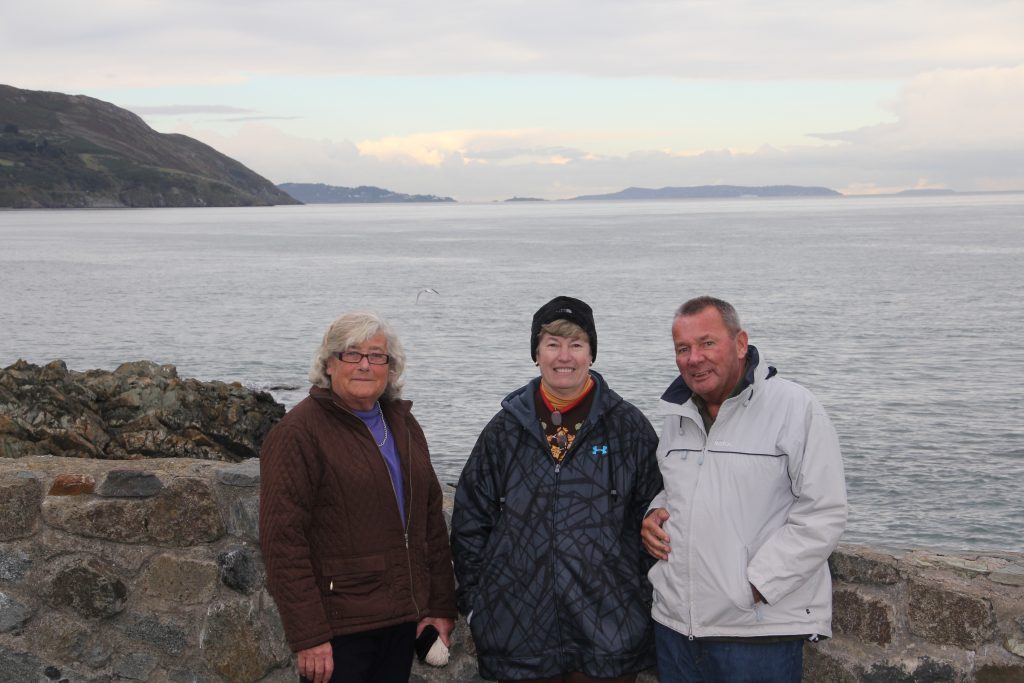Kathy Wilson knows how special cross-cultural friendships can be. In 1968, the 17-year-old Wilson traveled to Ireland as a high school exchange student with The Experiment in International Living. During the trip, she spent a few weeks living with a family in the coastal town of Greystones. She quickly bonded with host parents Elizabeth and Peter, who welcomed her as a member of the family.
Today, more than 50 years later, those bonds remain strong. “This was meant to be,” Wilson says. “The connections and friendships that have been established over these 50 years is undeniable and unbelievable.”
Homestays have been the cornerstone of The Experiment in International Living for more than 85 years. Through this summer study abroad program, high school students explore the world and immerse themselves in a new culture. Their homestay experience — which lasts one to three weeks, depending on the program — is a vital part of that immersion.
But the friendships created through the homestay experience can have a lifelong impact. Over the years, countless Experiment alumni have told us how they still treasure the friendships they built with their host families. We asked Wilson and two other alumnae — Karie Stern, who traveled to Japan in 1985; and Barbara Manuel Jarred, who went to Austria in 1966 — to explain what’s so special about homestays.
Karie Stern
Experimenter to Japan, 1985
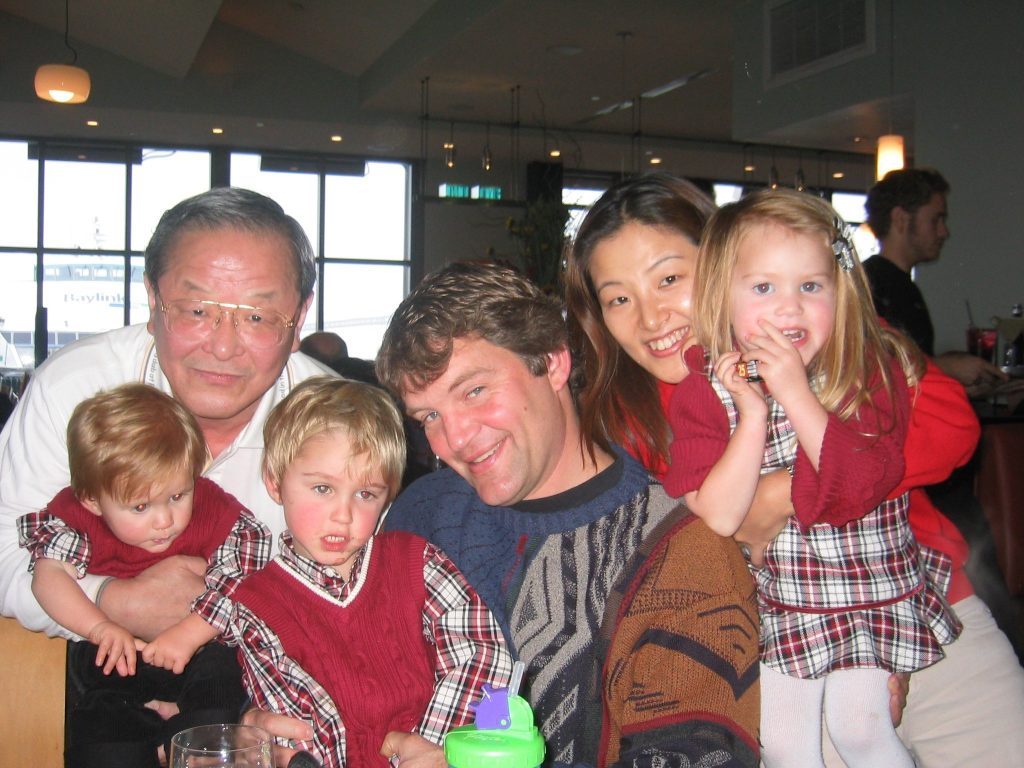
What was your first impression of your host family?
From the first day, I was very impressed with how open my host family was and how they went out of their way to give me the best experience they possibly could. My host sisters were so sweet and thoughtful. In many ways they were very much like my family back in the States.
How did you bond?
I was fortunate to have a wonderful and loving host family. I was most likely matched with them because I have three younger sisters and with my host family I had three younger Japanese sisters. I loved the entire family right away because they tried so hard to make sure I was happy.
I bonded with each Japanese sister for a different reason. The oldest was writing and learning to recite a speech in English and I loved helping her. She really was motivated to learn English. The middle daughter is really, really silly and funny. She was always trying to make me laugh. The youngest daughter was just super sweet and lovable, but shy. My host Papa tried to explain Japanese culture in his best and formal English and my host Mama really made it clear that she was my mother while I was there and that she would do her best to keep me safe and healthy while I was in her care.
What did you discover you had in common?
I learned fairly quickly that my family and the Oda family were very much the same. Maybe because were both houses full of girls — seven total (although I have a much younger brother, too). We initially bonded over shared interests in American music and the movies that they watched dubbed in Japanese. We also enjoyed the beach and exploring outdoors. I enjoyed learning how to cook Japanese food from them, and I loved eating it! I was very interested in Japanese culture and traditional dress, and they loved sharing it with me. The girls all did Japanese dance and I loved watching their lessons. They liked to sing and teach me silly songs and we had fun learning each other’s languages.
Why did you stay in touch when you left?
The first experience was so positive for all of us that we continued to keep in touch as pen pals and through phone calls. Papa could speak English well enough to communicate with my parents, so the following year, the oldest daughter came to stay with us for a visit. I loved taking her around and introducing her to my family and friends. She bonded with all of them and has relationships with my parents and sisters that are independent of mine. Each of the daughters then did Rotary exchange programs to the U.S. and Canada when they were in high school and I was able to see them then.
When I was in college, I studied Japanese formally and when my host parents came to the U.S. for a business trip, I met them again. After I graduated from college, I spent two years on the JET Program (Japan Exchange and Teaching Program). I requested to be in the same prefecture and was fortunate to end up in a nearby town and to teach at the high school that the youngest daughter attended. With my better Japanese, my relationship with the Oda family deepened.
I consider each of the Oda girls my best friends. I have attended their weddings and they came to mine. Two of the girls have had extended stays in the U.S. with their husbands and families for business, so I have gotten to know the next generation as well! With today’s technology, Japan feels closer than ever. Although, now that we all have children, we keep in the worst touch we ever have. But I know in my heart that they are always there for me and I am there for them. I am very blessed and fortunate to have such a wonderful family in my life.
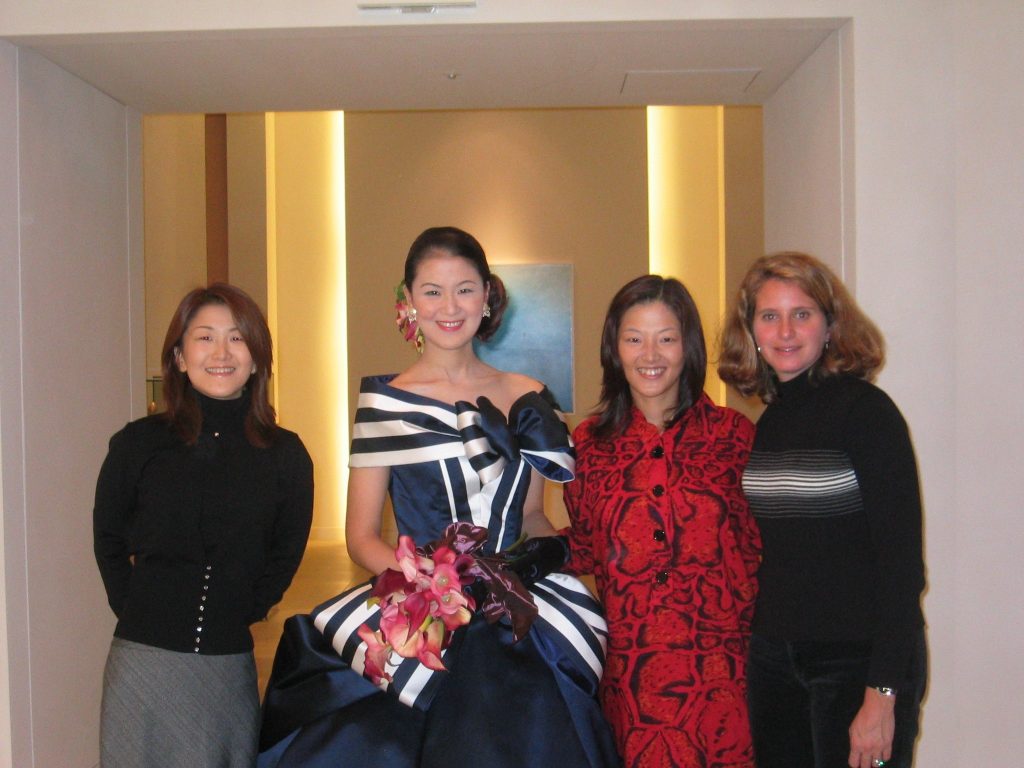
Why are experiences like The Experiment important for high schoolers to have today?
As technology appears to make the world smaller, it is amazing to me how there are still so many misunderstandings between cultures. Being a high school exchange student, with no preconceived notions and with the ability to adapt easily to new experiences, gives a person a chance to immerse themselves into a family and really be a part of that family — if they just open their hearts and minds to the experience.
Not only did I find fantastic lifelong relationships, I also learned a lot about myself and developed skills that are important to me to this day. Going to Japan 34 years ago gave me the opportunity to get out of my little fishbowl in the U.S. and experience a place and culture completely different than my own. I also had a chance to look inward at the U.S. and see it a bit more for what it was. The experience made me more resilient, less judgmental, and more patient and sympathetic on a global scale.
Barbara Manuel Jarred
Experimenter to Austria, 1966
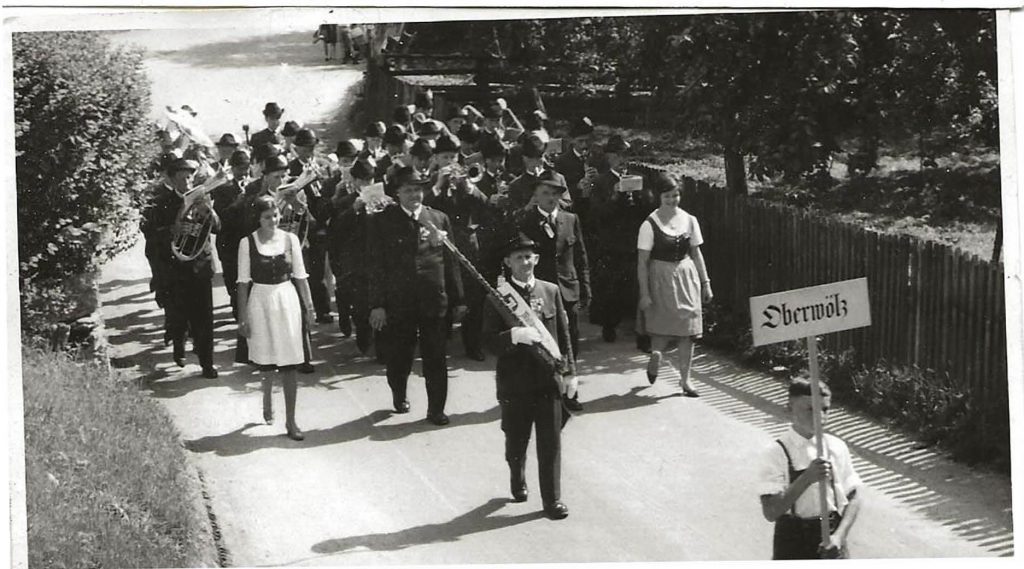
What was your first impression of your host family?
My first impression was that I lucked out; the Leitners were so friendly and warm. Even though they spoke no English and my German was very limited, we clicked immediately.
How did you bond with them?
The family was so easy to bond with as they had a sense of humor and a willingness to figure it out when words escaped me! Papa was a vet, so he took me on wild rides in the Alps to see the animals — which, being that I was a biology and chemistry major, worked well as I understood a lot about medicine. Mama was a fabulous cook and we bonded over kaffee and pastries — about 50 pounds worth by the end of the summer! [My host sister] Ingrid spoke some English and was a seamstress, so she helped me sew the obligatory dirndl, which my daughter-in-law now wears.
How did your communication with your host family evolve or deepen over the years?
Our communication was by letters at first, and I returned several years later while I was studying in Denmark. Then the girls got married and we all had families and sort of stopped for those years.
After my boys went to college, I took my husband back to Austria for the first time since the ’70s. We had an instant reconnect and have been visiting each other every three years. Email was the key to our latest communications. Mama’s girls have been here to visit me with their friends, as have their grandkids and great-grandson. My kids have also been to visit and developed a friendship with Mama’s grandkids. My entire family has met Mama and the girls and their families.
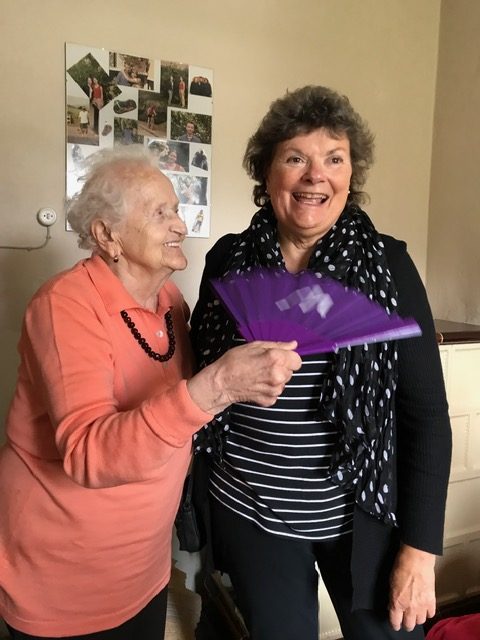
Why are experiences like The Experiment important for high schoolers to have today?
The experience is so much better when you live with a family as a member of the family. You learn what it is like to not speak the language and you learn how to communicate in a different manner. I worked in a medical lab and then started teaching, and my experience with The Experiment helped me so much in the science classes that I taught. I learned how to make science accessible when there was a language barrier. It gives you a much needed insight into other ways of life and teaches you patience and tolerance toward other cultures.
I sent both my boys to summer school in England and in Prague so that they could have that experience, but the college programs put them in a dorm with all Americans. After meeting the Leitners, they said my experience was much better!
Kathy Wilson
Experimenter to Ireland, 1968
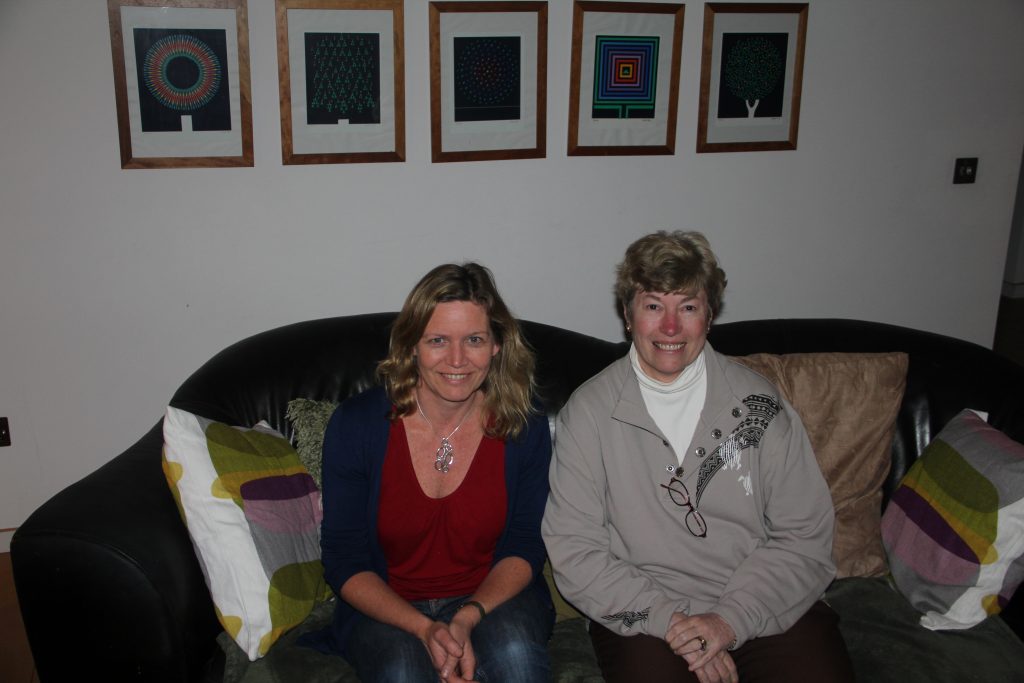
What was your first impression of your host family?
It was very late at night when we arrived in Greystones and met our families at the local pub. They lived just up the road, so we walked from the pub to the house and pretty much went to bed. The host mom Elizabeth greeted me the next morning with a steaming hot cup of coffee. I don’t drink coffee but felt obligated to drink it since she had kindly brought it to me. As I did not want to offend her, I continued to drink coffee the whole time with them. I was made immediately welcome and that welcome has lasted 50 years!
How did you bond with them?
They were not that much older than me in 1968. Elizabeth was only five years my senior and Peter was seven years older, and they had two adorable children aged 2 and 8 months. As I had done a lot of babysitting, these two little ones were immediately dear to me and I was treated like the big sister rather than some kid from America staying with them.
What is your communication with them like today?
This wonderful family went on to have seven children. All are married and six of the seven have children of their own. I am in touch through Facebook with all of them, including Peter and Elizabeth’s other family members. My Irish family has now grown to more than 50 people.
My own son visited with them when he was 15 and actually attended Peter Jr.’s wedding. My husband and I have made trips to visit with Peter and Elizabeth multiple times. Since Peter Jr. moved to Annapolis 20 years ago, Peter and Elizabeth have made several trips to visit him and his family — and since Annapolis is only about an hour from my home, we have been able to catch up with them. Peter Jr.’s two daughters now go to a university in Baltimore, so we catch up with them for lunch or dinner.
What makes these friendships so special to you?
If this match between one 17-year-old girl from Baltimore and one couple in their early twenties with two small children was not made in heaven in 1968, then there is apparently no heaven. This was meant to be. The connections and friendships that have been established over these 50 years is undeniable and unbelievable.
Unfortunately, in 2017 at age 72, my dear host mother Elizabeth unexpectedly passed away. This has been hard on all of us and our conversations with each other have increased through Facebook … calling and talking several times a week. In addition, last January I was diagnosed with stage 4 cancer and the love and support and outpouring I have received from this wonderful Irish family as I go through this challenging journey is incredible. I am not really sure I am as close with my own family members as I am with these folks.
Why are experiences like The Experiment important for high schoolers to have today?
I am now almost 50 years out of high school, and at the beginning of January, my school invited five of us back to share any international experiences we might have had in front of the high school students. I shared my Irish experience and encouraged them to pursue experiences like the Experiment. Hopefully they, too, can experience what I have.
